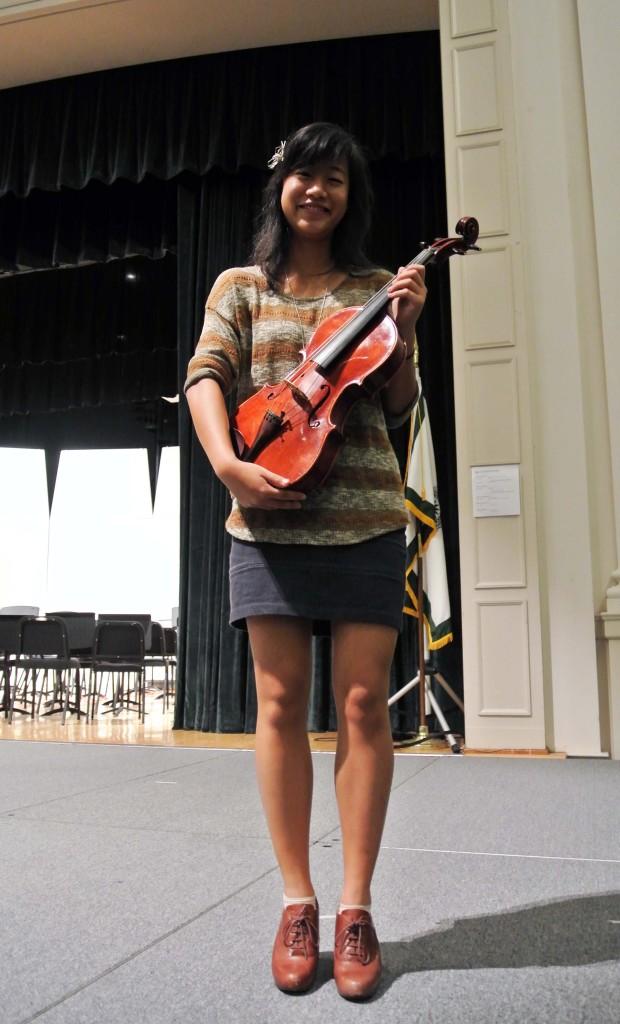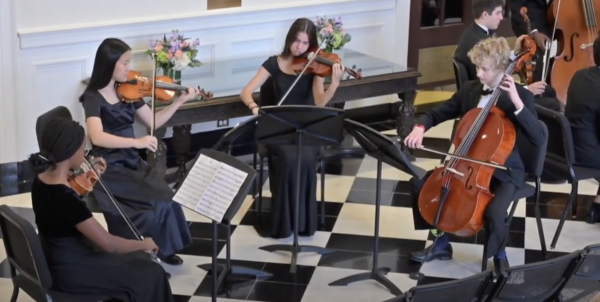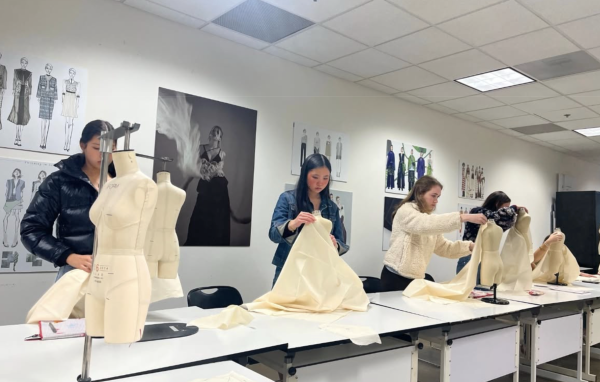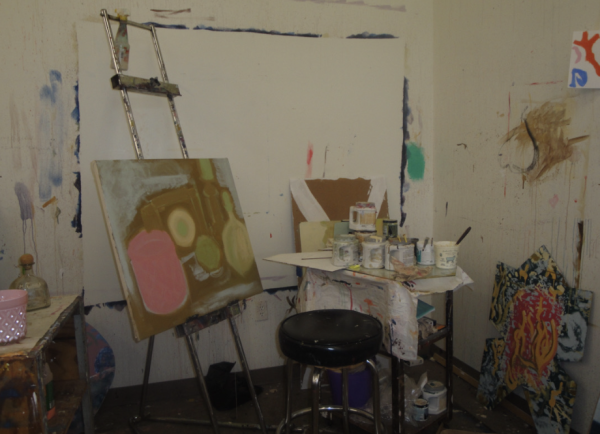Students expand to music outside school
Students participate in prominent Georgia Bands to hone their skills.
Photo credit Angela Qiu
Katherine Hur preparing for her next rehearsal.
For some especially musically inclined students at Westminster, Westminster’s Band just isn’t enough playing time with their instruments. So, these students seek extra instruction and involvement outside of school, in groups such as Atlanta Symphony Youth Orchestra (AYSO), Atlanta Youth Wind Symphony (AYWS), Georgia Youth Symphony Orchestra (GYSO), and Rialto Youth Jazz Orchestra (RYJO). Both the AYSO and the GYSO are full orchestras, while the AYWS and RYJO are more specialized in the type of instruments that they play. Each of these groups performs a number of concerts, between 2-4 per year.
Collectively, these groups are recognized as having the best musicians in the state, and acceptance into these groups marks a huge achievement. Of course, this necessitates a fairly involved and challenging application process.
“You send in your application, and then you have to be a member of your school’s orchestra…you audition for [ASYO], and then if you make it you have to take a second audition for seating,” said senior Katherine Hur, who plays seventh chair viola at AYSO. Knowing the details of what one must prepare for each audition makes the process seem even more daunting.
“You have to prepare a technical piece and a lyrical piece, as well as sight reading,” said freshman Cyrus Faruque, who is the principle alternate tenor saxophone for AYWS. “[The pieces] are your choice…then the sight reading, they will give you a random piece of music. It usually features music that is commonly mistook,” explains Faruque. For those of you who don’t know, sight-reading is when you are handed a random piece of music and told to play it without practice. However, should one make it into one of these select groups of musicians, the rewards are numerous and great.
“The cool thing about ASYO is that we get to perform at the Woodruff Arts Center, on the very same stage as the Atlanta Symphony Orchestra,” said Hur. “[Many players] go on to Juilliard, the Curtis Institute of Music, and to actually pursue music as a career.”
However, not everyone in these groups plays as a path into college and eventually a career. Some play simply for the love of music itself.
“A lot of the people that are [playing in AYWS] are doing it because they…love playing their instrument,” said senior Gabi Vesey, who plays the oboe in both GYSO and AYWS. “A few prodigies go on to [play as a career] though.”
These students’ love for music drives them to seek more practice and involvement outside of the teaching that they receive at school, and their devotion to their instruments has side benefits for those of us at Westminster.
“These auditions really develop the students in their playing, because it’s always important to focus on some sort of audition or competition or performance to motivate you in your practicing and to give you something to work on at all times,” said Faruque. “It improves their playing greatly and it improves the Westminster music programs.”
While all band students can practice at home by themselves, there are a limited number of hours each week that a student can practice with a full band, due to their busy schedules. Playing with a band and playing by yourself are very different things, and the best practice for playing in the band is of course playing in a band. So, when students play in these groups outside of school and they come back to our band, they sound even better for performances at Westminster. However, the instruction that these students receive outside of Westminster is no ordinary instruction. It comes from masters of music.
“We get coaching from members of the Atlanta Symphony…sometimes David Coucheron, who’s the concert master, will come teach the violins. We get the principle of the violists to come coach us,” said Hur. “[There are] lots of big opportunities.” In addition to specialized instruction, each member of these groups gets to look at pieces of music that they would not normally see at Westminster.
“The things that I do outside of school are more challenging, so I become a better player from those [pieces],” said Vesey. The pieces played by groups such as AYWS are harder to play, and thus present more chances to learn complicated techniques than students typically see at Westminster.
By exposing themselves to intensive as well as just a greater volume of practice outside of school, these students greatly improve the already stupendous quality of the Westminster band and orchestra. In playing ever more difficult pieces with these groups, these exceptional musicians also provide themselves with more experience for playing just for pleasure, for playing in Westminster’s band for the student body’s enjoyment, and perhaps, for the select few, for playing in college and even professionally.




